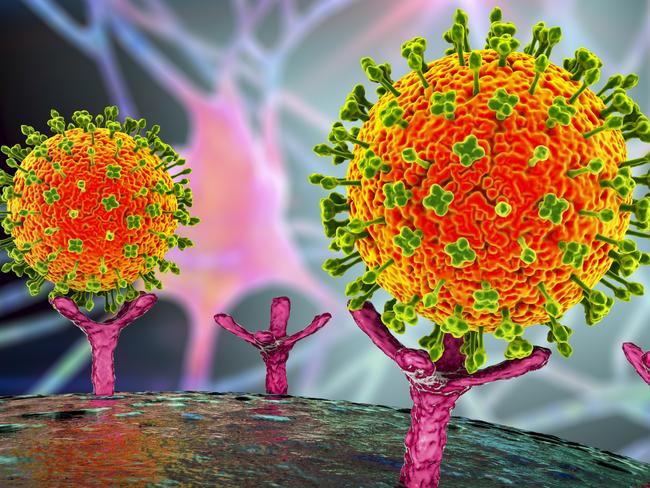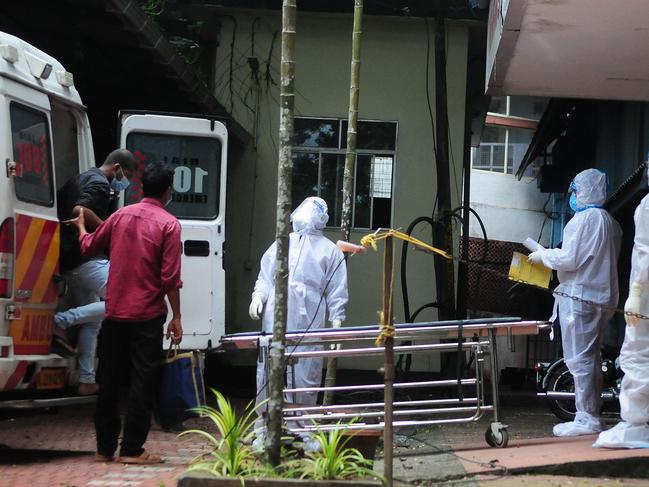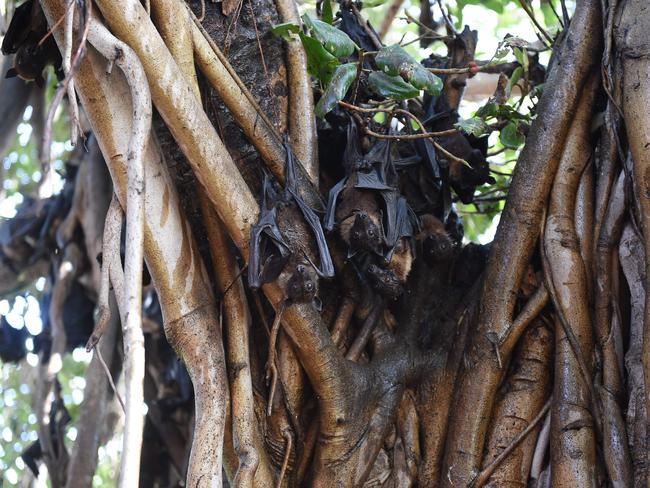Bali virus threat: What it means for Aussie travellers
Tourists flying into Bali are being screened by thermal imaging scanners for the deadly Nipah virus amid growing concerns.
Travel
Don't miss out on the headlines from Travel. Followed categories will be added to My News.
Tourists flying into Bali are being screened by thermal imaging scanners for the deadly Nipah virus amid growing concerns from prominent scientists about the potential emergence of a new global pandemic.
A fever or rising body temperature is one of the earliest symptoms of the Nipah virus as well as monkeypox, which Balinese officials are also on high alert for.

Outbreaks are rare but Nipah has been listed by the World Health Organisation as one of several diseases that deserve priority research because of their potential to cause a global epidemic.
Here’s what we know so far.

WHAT IS THE NIPAH VIRUS?
Like the SARS-CoV-2 virus that triggered the Covid-19 pandemic, the Nipah virus is a zoonotic virus, transmitted from animals to humans.
Fruit bats are the natural carriers of the virus and have been identified as the most likely cause of outbreaks.
Although the Nipah virus has caused only a few known outbreaks in Asia, it has the potential to infect a wide range of animals and cause severe disease and death in people, making it a public health concern, the WHO said.

HOW IS THE NIPAH VIRUS TRANSMITTED?
The virus be transmitted through contaminated food — or directly between people — and can cause a range of illnesses, the WHO said.
These illnesses can include asymptomatic infection, acute respiratory illness and fatal encephalitis.
WHAT ARE THE SYMPTOMS?
People infected with the Nipah virus initially develop symptoms including fever, headaches, myalgia, vomiting and sore throat.
This can be followed by dizziness, drowsiness, altered consciousness, and neurological signs that indicate acute encephalitis, which is an inflammation of the active tissues of the brain.

WHAT DOES THE NIPAH VIRUS DO TO HUMANS?
Some people can experience atypical pneumonia and severe respiratory problems, including acute respiratory distress.
Worryingly, in some severe cases encephalitis and seizures can occur and progress to coma within 24 to 48 hours, the WHO said.
DO PEOPLE RECOVER FROM THE NIPAH VIRUS?
Most people who survive acute encephalitis make a full recovery, but long term neurological conditions, such as seizure disorder and personality alterations, have been observed in survivors, the European Centre for Disease Prevention and Control said.
DOES AUSTRALIA HAVE EXTRA SCREENING MEASURES IN PLACE?
The Department of Health and Aged Care said it monitored communicable disease outbreaks internationally and no extra screening processes have been implemented at Australian airports as the transmission risk is “very low”.
“The current Nipah virus outbreak is in the Kerala province of India and Indian authorities have implemented a public health response including enhanced surveillance activities, contact tracing, communication and community engagement, specific infection prevention and control training for healthcare workers, distribution of PPE and animal testing,” the department said in a statement.
“There has been no evidence to indicate the outbreak has spread beyond the Kerala province.”
WHAT ABOUT THE NIPAH VIRUS IN BALI?
An outbreak of the deadly Nipah virus was recorded last September in Kerala, India, resulting in two fatalities. Extra screening is in place for the Nipah virus at Bali Airport as well as monkeypox.
IS THERE A VACCINE FOR NIPAH VIRUS?
While there are currently no approved human vaccines or treatments for Nipah, several are currently in clinical trials, including an mRNA-based vaccine, according to the National Institutes of Health in the US.
More Coverage
Originally published as Bali virus threat: What it means for Aussie travellers





